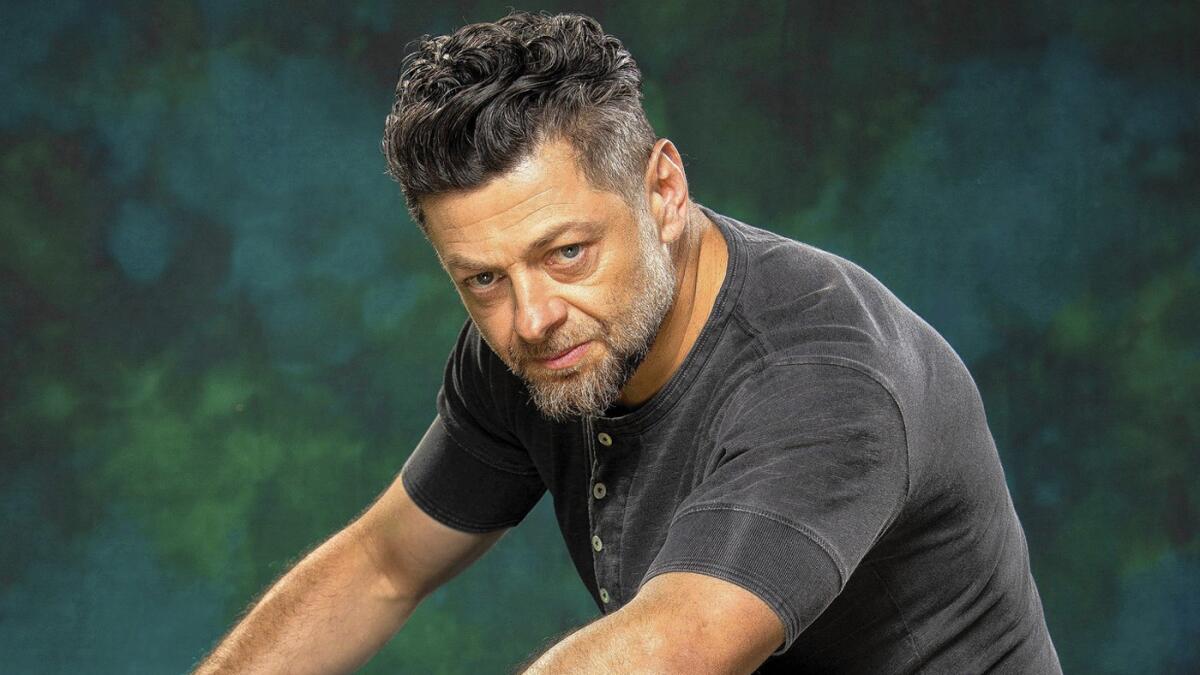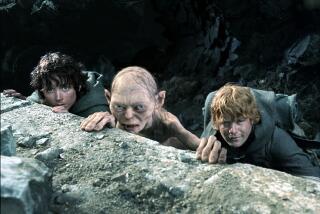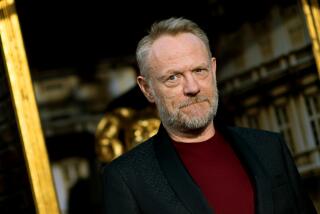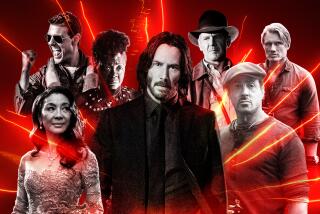Andy Serkis keeps fit for his shape-shifting roles

Andy Serkis is known for bringing Gollum from “The Lord of the Rings” and the gorilla from “King Kong” to life using motion-capture technology. He also plays Caesar in the just-released “Dawn of the Planet of the Apes,” and what many don’t realize is that the technology doesn’t make Serkis’ job any easier. If you see it on film, the actor did it in real life, and that means he needs to be in top shape to play roles that involve biting off a Hobbit finger, climbing the Empire State Building or overthrowing the human race in an ape-ocalypse. One fact: If you’re going to climb Mount Doom, it helps if you practice on the Matterhorn first.
Is there a reason why you’re adept at motion-capture roles?
A lot of people think it’s about learning monkey movements or a type of physicality, and that is part of it, but at the end of the day I’m just an actor. I’ve been lucky enough to play some great characters, but I’ve developed a love for the technology because it allows you to do anything. I’ve found I was able to say something more about the human condition the further away I got from being human.
Caesar is a complex character in that he is a chimpanzee, but he’s almost a human in ape skin, so it was putting together that human psychology with the ape physicality. I based him on a particular chimpanzee named Oliver who behaved with very human-type attributes.
How physically demanding is it to play the role of Caesar?
You really get put through your paces. We spent a lot of time quadrupedal and using arm extensions to mimic the apes’ longer arms. In the lead-up to the shoots we had an “ape camp,” where we stay in character for many hours and workshop the characters. That by itself is a workout. You’re sitting down on your haunches, and your thighs are burning. You’re hunched over and pulling in your stomach muscles. Just being an ape is a workout.
In your Gollum, King Kong and Caesar roles, there is a lot of bounding and climbing, and I understand that’s something you have experience with.
Ever since I was 16 I’ve been an avid mountaineer. I’ve climbed a lot in the Alps, done rock climbing, winter mountaineering and alpine climbing. I climbed the Matterhorn in Switzerland in 1996. Mountains have always played a significant part in my life, and it’s helped with a number of the roles I’ve played.
How does your general fitness help with these roles?
I have a road bike and a mountain bike, and I tend to use them both a lot. They help you keep your balance and your stamina. I like to run as well.
We were shooting on location, so you’re out in woodlands on slippery surfaces, running across logs and jumping off rocks. Your body has to be tough and flexible. There were a couple of big jumps I had to do that you have to hit a mark and be very accurate in a muddy rain forest. My low back took a battering playing Gollum, and then going from that into Kong I went from having a concave back with Gollum to a convex one as a gorilla, so it was almost like remedial therapy. It straightened me out.
In the new film you’re on horseback. Were there any specific challenges there?
I have ridden horses before, but they definitely didn’t like having apes on their backs. There is a whole physicality in the way that we gripped them, the way we rode, and the way we would mount and dismount that were inhuman. And also we were doing ape vocalizations, so the horses found it a bit freaky. I had to relearn how to ride a horse like an ape. I had to change how I jumped off and how I gripped them with my thighs and distribute my weight differently.
Fell is a certified strength and conditioning specialist and owner of sixpackabs.com.
More to Read
Only good movies
Get the Indie Focus newsletter, Mark Olsen's weekly guide to the world of cinema.
You may occasionally receive promotional content from the Los Angeles Times.










